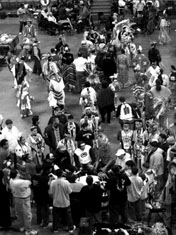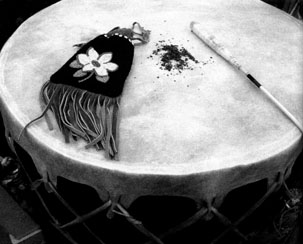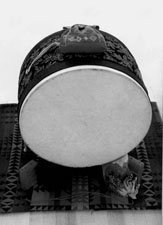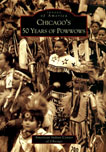|

 |
Chicago's Fifty Years of Powwows |
<Adapted from the book of the same name>
The First Circle: The Drum is the Heart
The most essential part of any powwow is the Drum. The Drum is highly revered and is known as "Grandfather."
It is believed that Grandfather came from woman. Woman is the closest physical element to the Creator because she is a life giver as well. Over time, woman then gave Grandfather to man to provide needed protection. Thus, the male is the protector while woman remains the nurturer. This is an oral lesson which is still practiced and taught today.
Grandfather as an object is created with elements of life. Our four legged brothers spend a short time in the physical world because that is their purpose to sacrifice their lives to sustain the heartbeat of the people. Grandfather is able to possess skin, and a skeleton made of our cousin the tree of life.
Forward to the next page of this essay Back to the previous page of this essay Back to Online Essays
|
| |
Department
of Anthropology |
copyright ©
2002 University of Illinois, All rights reserved. |




